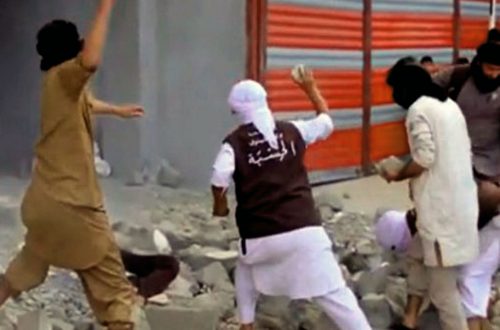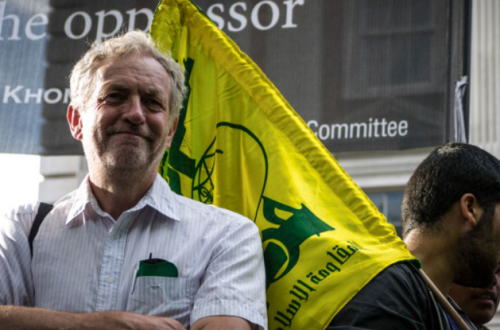News bulletins are uncritically broadcasting the view of the terrorist, Bilal Abdulla, recently convicted of the London and Glasgow attacks, that his actions were motivated by the Iraq war and the oppression of Muslims (strangely, he appeared unmotivated to action by their oppression under Saddam, and their further oppression by extremists like himself). His QC, Jim Sturman, puts the case:
“This is not a case where his intention was driven by religious faith but by his frustration with what he saw as an unjust war”
His zeal to address an unjust war can of course be measured by his decision to target a night club with the bombs in London, rather than a military barracks. As another jailed terrorist group noted after their failed attempt to murder women:
“A big nightclub in central London, no-one can put their hands up and say they’re innocent – those slags dancing around,”
The Times reports the following about Abdulla:
In Britain he was detected by MI5 on the periphery of extremist activity when he associated with Muslim radicals, including members of the Hizb ut-Tahrir party, while studying in Cambridge.
Shiraz Maher filled in some other gaps in Bilal’s “political” stance last year:
Bilal had grown up in Baghdad. He told me how he hated Saddam Hussein, how even after the American invasion his extended family stayed there. All were of the same ideological persuasion. All believed in Wahhabi ideology. He didn’t see himself as being radical: he saw himself as following Islam. He developed a vitriolic hatred for the Shias after one of his closest friends at university in Iraq was killed by a Shia militiaman. He would say they needed to be massacred. He called them kafirs, disbelievers who insulted the Prophet.
[…]
Bilal talked about the validity of jihad, about expelling American and British troops. He described jihad as the highest pinnacle of Islam. He worked to the same endgame that we were all working to. There was no difference between us at the time. He would laugh when we talked about a particular bomb attack in Iraq. We all rejoiced then. And yet even I didn’t think that he would take action himself.
[…]
And so it was through my involvement with Hizb ut-Tahrir and its ideology of extremist political Islam that I came to befriend Bilal, the would-be bomber. That’s why I believe it’s wrong to distinguish between “extremism” and “violent extremism” as the government has been doing in recent months. The two are inextricably intertwined. Without movements such as Hizb creating the moral imperatives to justify terror, people like Bilal wouldn’t have the support of an ideological infrastructure cheering them on. And, I believe, it’s a fallacy to suggest that the culpability of agitators and cheerleaders is any less than for those who actually carry out acts of terror.
So yes, to an extent Bilal’s actions were political in nature, but the politics they sprang from were the same radical jihadism that has been responsible for other terrorist atrocities from 911, to Bali, and to the London bombings. They are not a simple counter-reaction to Iraq, or Afghanistan. They are part of an extremist political stance with a clear religious basis. It is a political stance that the majority of Muslims themselves have found extremely oppressive and reject. It is a pity that in the immediate aftermath of his conviction, a terrorist is able to push the Blair’s Bombs gambit past the media so easily.


